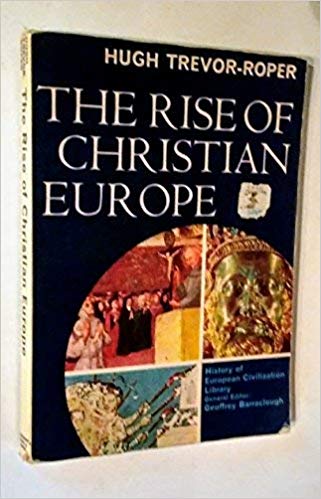Rusviking876
Active Member
- Dec 10, 2019
- 65
- 53
- 25
- Country
- United States
- Faith
- Eastern Orthodox
- Marital Status
- Single
Feudalism was not rule of the rich but rule of landed military aristocrats. They didn’t make their living like the American tycoon. They were granted a fief through military service. And the top aristocrat, the King or Emperor, led armies into battle himself. Monarchs also collected petitions from all classes of society for redress of grievances, a tradition that had begun with the Roman Emperor.Barbarian asks:
Whereas, in Medieval times, a serf was free to resist the government? How so?
So that hasn't changed? That's not the first story we got.
Capitalism does tend to empower businessmen, yes. At some point that can become oppressive, which is why people make rules to limit the power of the wealthy, who would likely reinvent feudalism. That's how feudalism got started, you know.
On the other hand, government now has rules that limit the arbitrary power of the state. In America, the state itself was designed to limit the power of government through laws like the Bill of Rights, independent judiciary, and a "deep state" that prevented any one person from ruling by decree.
Just noting the weirdness of quoting and advocate of democracy as though he were an opponent of it. De Tocqueville was a clear-eyed realist; he saw the flaws in democracy, even as he realized it was preferrable to any other form of government we might have.
I notice they often go to jail when caught. Which is what happens to common thieves as well. Sometimes they get away with it, but in the Middle Ages, if a noble wanted something you had, you lost it.
Not in the last three years, but it appears that there will be a reckoning when Trump leaves the WH.
Rather, I'm pointing out that you juxtaposed an idealistic version of the Middle Ages with a dystopian vision of democracy. You must compare them as they actually functioned in reality.
You must be unaware of the peasant and monastic communes which were subject to their own rules. No, nobles did not get “whatever they wanted”. Their land and title was only theirs at the King’s approval and could be revoked.
The economy was agricultural, industrialization nonexistent, and warfare contained.
It wasn’t a utopia and in no way am I portraying it as such, there was terrible disease. But it was far better than today.
So today’s unaccountable “deep state” megabureaucracy is a good “check and balance”? Why?
How will there be a “reckoning” if you just said the bureaucracy stops presidents from doing anything?
What makes you think politicians go to jail today? Is Hillary Clinton in jail for compromising state secrets with her personal server?
Is George Bush in jail for the destruction of Iraq and Afghanistan?
What politicians have gone to jail?
What convinced you that politicians today (including Trump) are anything other than frontmen for special interest lobbies?
What makes you think limiting state power is an imperative (which I agree with you on) but not limiting the power of the private sector?
Why is industrialization and “made for the dump” consumer capitalism not critiqued?
Why is voting a sacred cow? How can one Senator or congressman represent hundreds of thousands or millions of different people?
What makes you think nationwide US elections are not determined by media access and large campaign donors? What makes you think the constitutionally enforced rights are actually guaranteed today? What about rights that aren’t in the constitution? Why do the 51 percent decide what my rights are? Isn’t that called mob rule? Isn’t the Bill of Rights then an “elaborate scheme to entrap people” as the Antifederalists said?
Upvote
0

